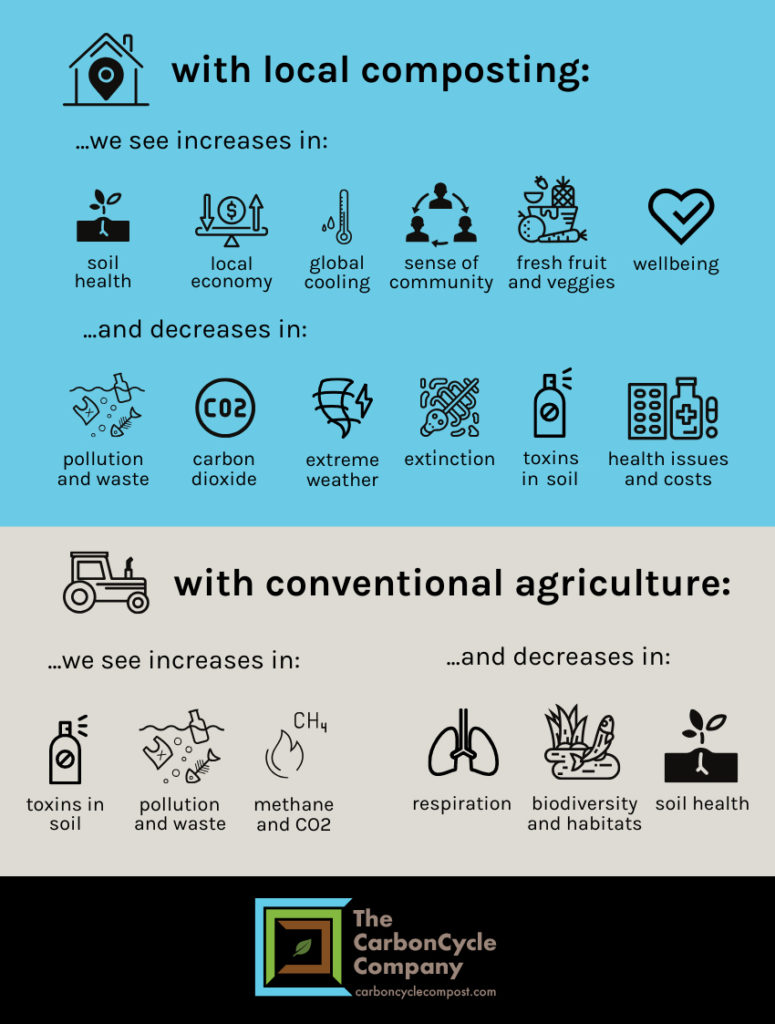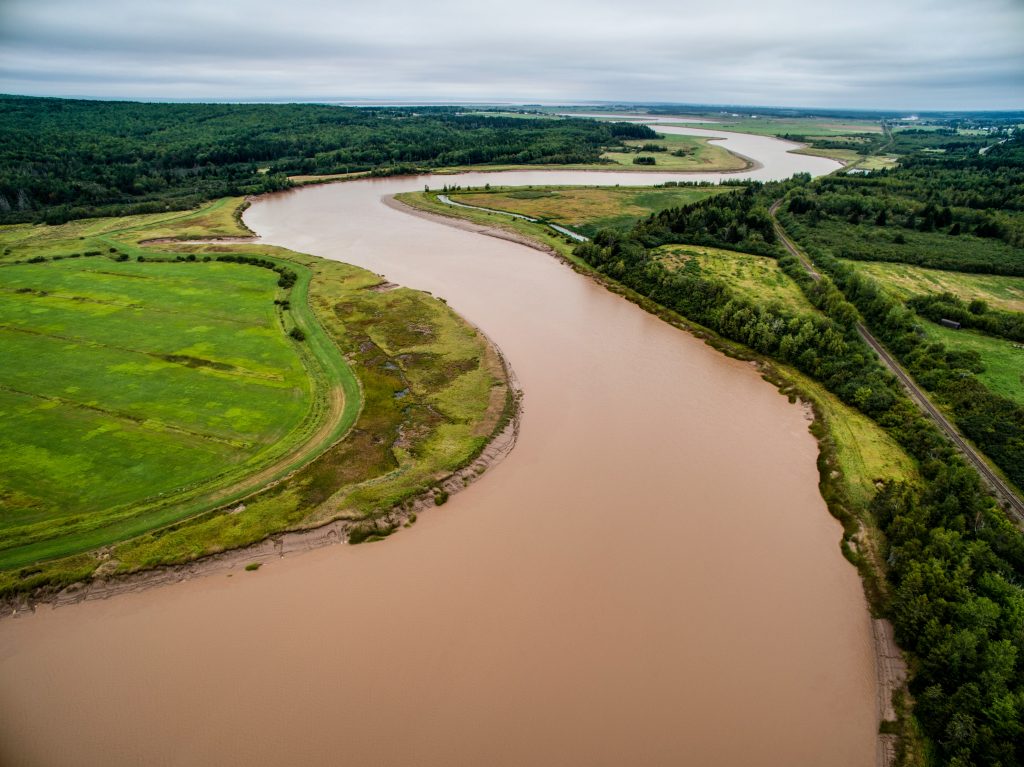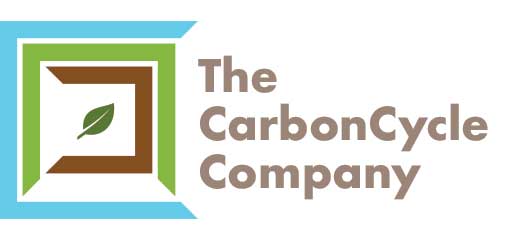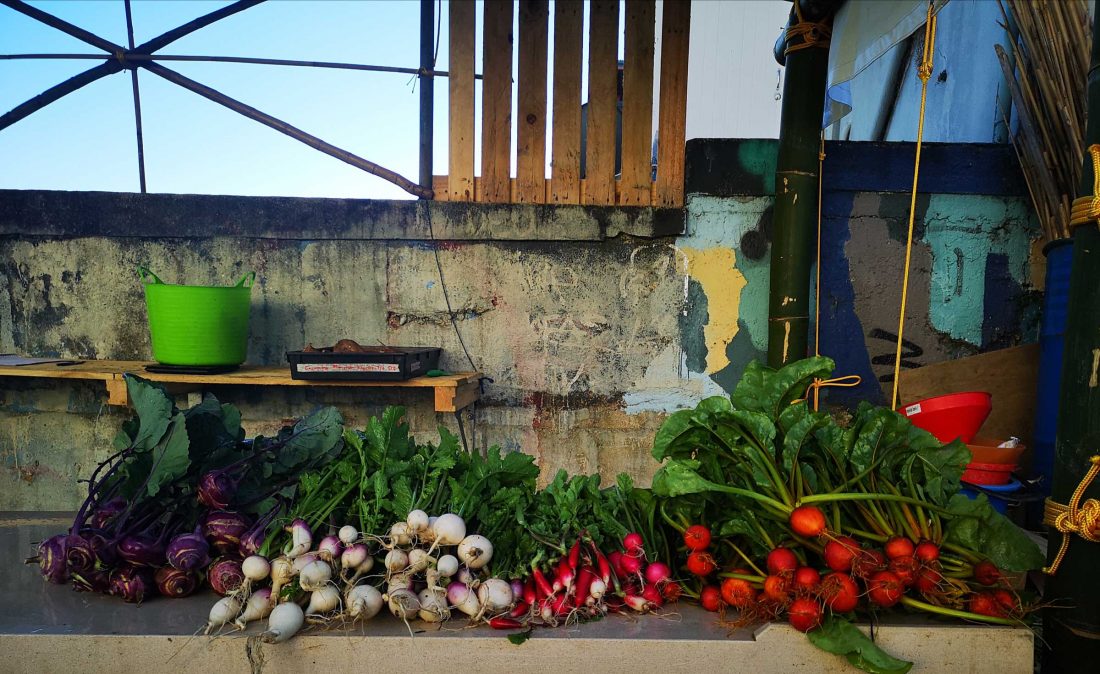Why is local composting important?
In most parts of the world, organic waste still goes straight to methane-producing landfills. Nowadays, some governments and local councils are starting to realise that composting is essential for sustainable communities. However, their solution is usually an industrial-level compost plant or anaerobic digester, where food waste is transported from communities to an external processing plant. While they have good intentions, unfortunately this practice actually creates more problems and is not the ideal way to deal with organic waste. We believe that local composting is always best, and here is why.
“Making compost locally is critical to the reform of our food supply. Composting can, should and must be done on a local scale.”
– Richard Wallis (Doctor Compost)
Why should we use compost?
Without composting, this is what happens to the environment:
- Decomposing food in landfills release toxic methane gas
- Anaerobic digesters do not put nutrients back in the soil
- Artificial fertilisers kill soils, waterways and oceans
- We are not replacing the carbons taken from the soil, breaking the carbon cycle
- We are damaging the atmosphere with excess greenhouse gases

When we compost locally:
- We lower even further our carbon footprint by getting rid of waste miles (e.g. no trucks to a centralised plant way out of town and then back again with the compost)
- We can grow our own food (having fun, saving money, improving healthiness and removing the relationship between food and oil)
- We regain our sense of community and belonging (reducing loneliness and depression)
Society also benefits from local composting
- We get better gardens and food
- Our health improves
- The urban poor benefit from education and nutrition
- Our communities become communities again
- We enhance our imperilled food security [1]
That is why we say that local composting has become the missing link in the Carbon Cycle.
Local composting feeds the carbon cycle.
We have been trying to beat it since the industrial revolution. It’s gotten especially bad since the end of WWII, when industrialists had to find another use for the post-war surplus stocks of ammonia and other compounds and elements. And soon after that, our government agencies decided to collect and bury our food waste and other organic matter in methane-producing landfills.
As a result of abandoning local composting efforts:
- Our soils have either died or they will very soon. In the USA alone, it was estimated in 2014 that 28% of all cropland soil was eroding above tolerance rates (ie dying)
- Our waterways have been polluted to such an extent that government agencies are trying to tell us it is ambitious to make them wade-able again in maybe 20-30 years. Forget about drinking or swimming
- Our food has fewer nutrients due to lack of nutrients in the soil
- Our planet is warming
- Our communities have become individualistic

Good local composting can reverse all of this. Why wouldn’t you do it?
- We recover the health and depth of our dying or even dead soils and cease the mindless reliance on synthetic fertilizers
- We take control of global warming (getting carbon where it should be, avoiding landfills, methane gases, nitrate pollution of our waterways and oceans and food miles)
The time to act is running out
With the current climate emergency, we have a limited time before we can reverse the effect we are having on the planet. It is time to embrace and support the natural carbon cycle. It is time to stop accepting what we are told by vested interests.
Compost feeds the soil and the atmosphere.
“A diverse and local composting structure is needed. …one that first prioritizes food rescue, backyard composting, onsite institutional systems, community composting and urban and rural on-farm composting before the development of centralized regional facilities – will be more resilient and will better reap the economic and environmental benefits that organics recovery has to offer.”
ISLR, State of Composting in the US – What, Why, Where & How (2014)
If you’re keen to start composting locally with a powerful compost box, the CarbonCycle Composter can get you started.
Composting is the only way to go and localized composting is the ultimate solution
[1] Food security is an issue because food produced by conventional agricultural and horticultural practices uses 10 calories of energy to deliver 1 calorie of food; for every kilo of food 4 kilos of soil is lost; the use of herbicides and pesticides result in loss of biodiversity; the loss of biodiversity and the burning of fossil fuels and the burning of soil carbon lead to an accumulation of CO2 in the atmosphere as well as a loss of nutrient and water from the soil. All of which drives ever increasing levels of CO2 in the atmosphere We have to reform the current food system so as to deliver to everyone living in cities reliable access to affordable fresh whole foods (i.e. fresh fruit and vegetables) and to eliminate the oil and ecological cost of food.


No Comments